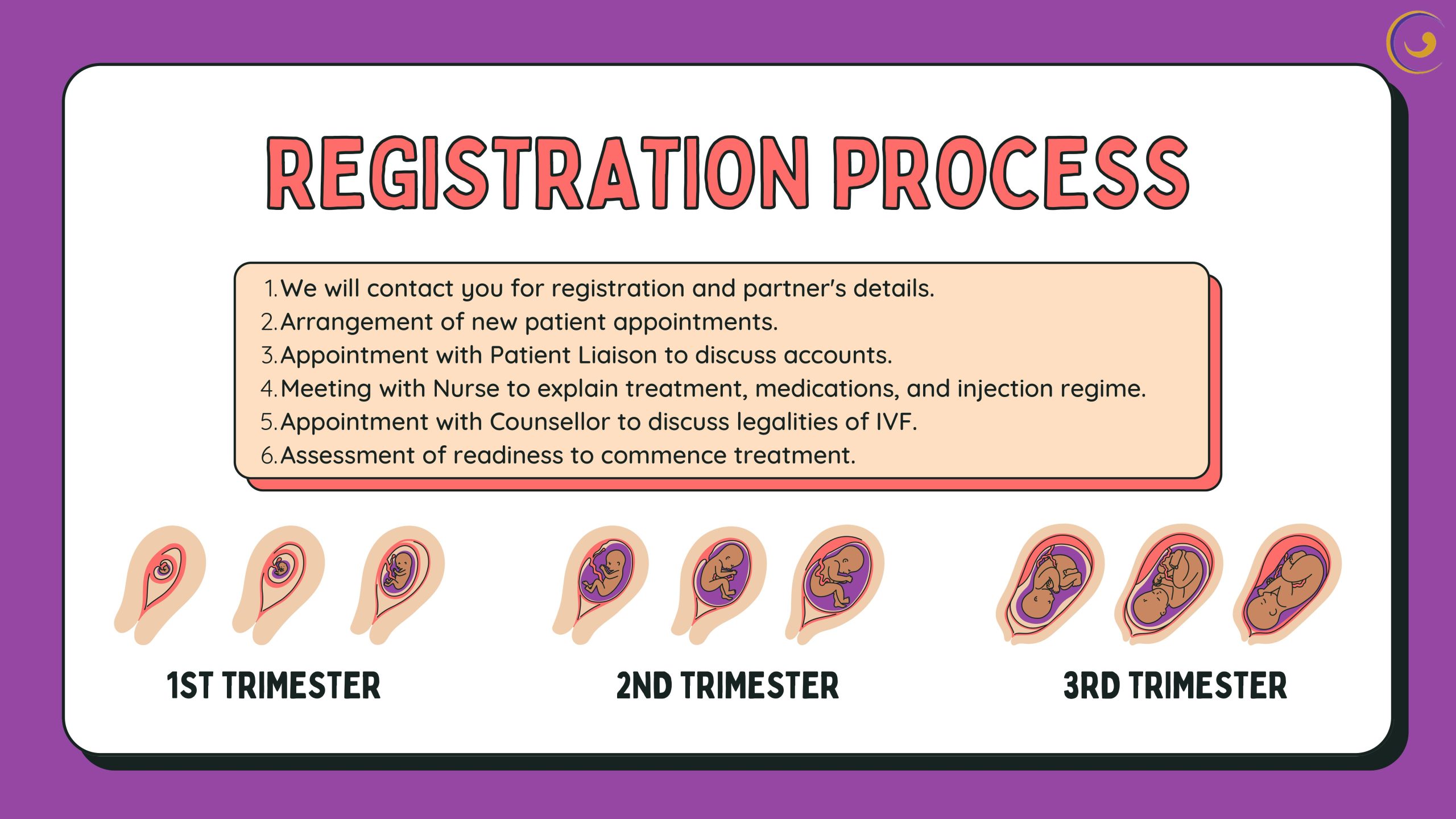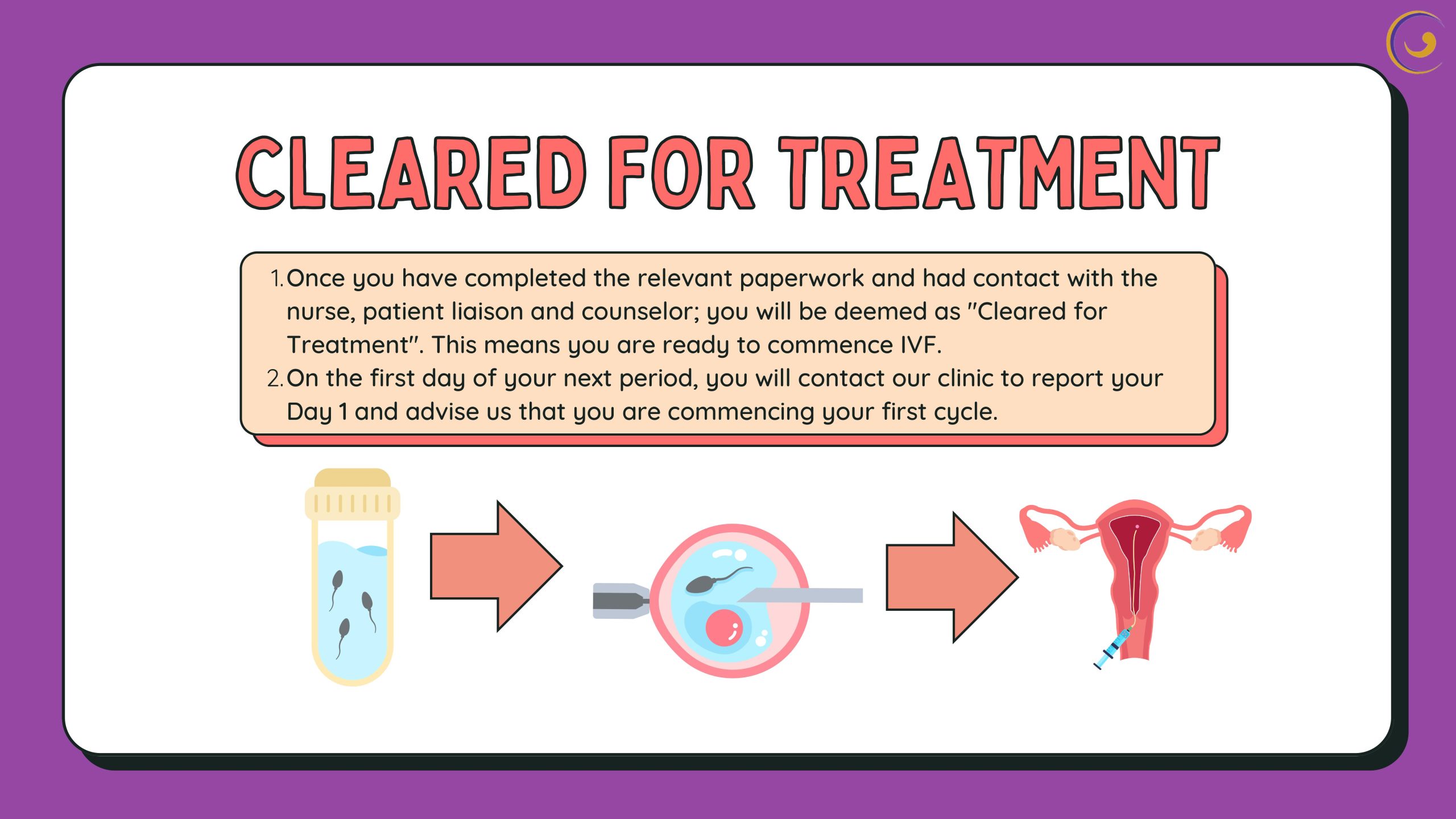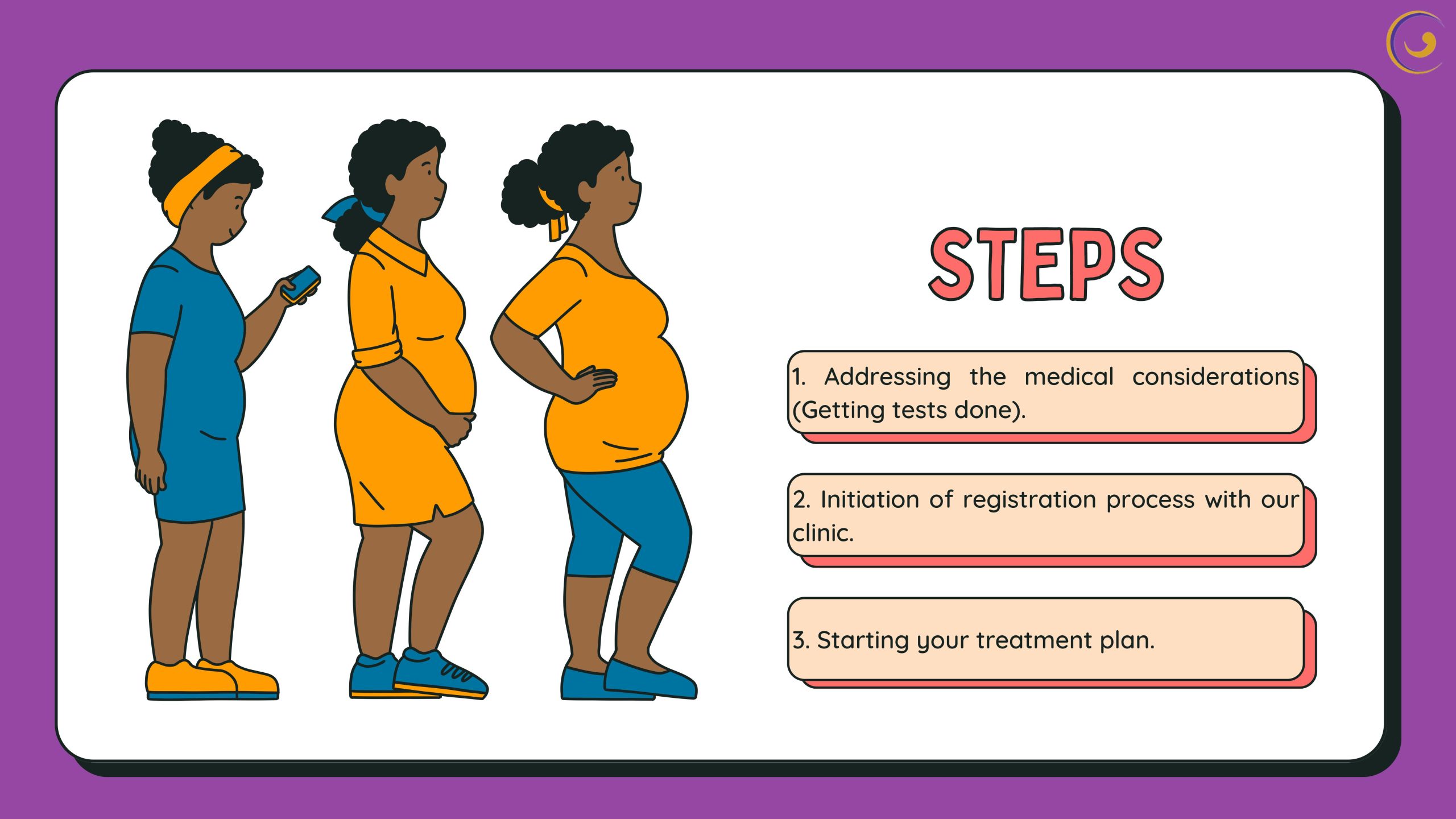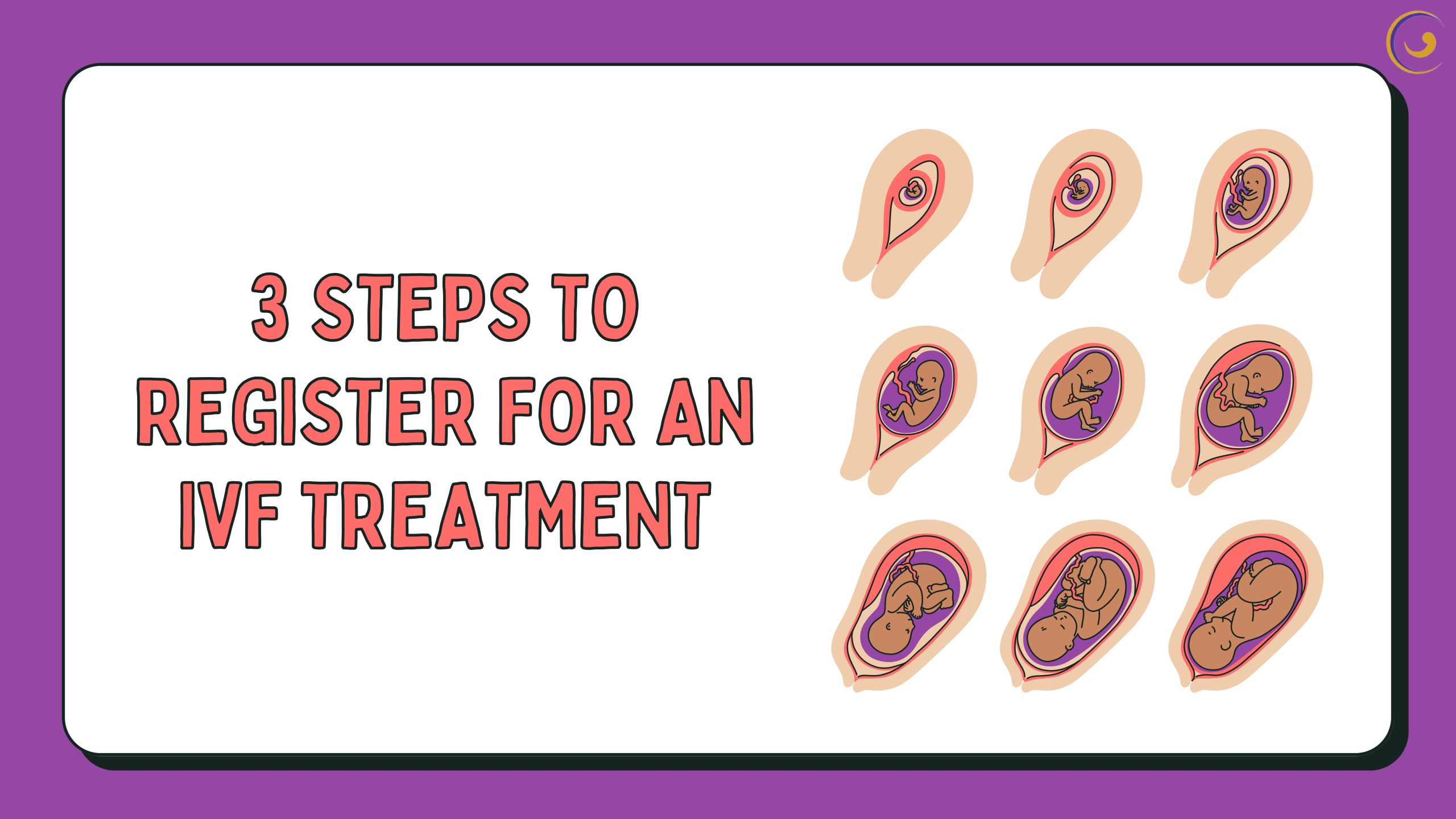

















CLOMID USAGE UNDER THE CARE OF DR. MYRAN
- What is Clomid?
Clomid is a fertility drug used to induce ovulation and comes in tablet form. It’s generally used as a first step in fertility treatment – Source: Drugs.com
Clomid is taken for a certain number of days after your menstrual cycle.
- What happens when I am taking Clomid?
During your prescribed Clomid cycle, your ovarian response to the medication will be monitored using an ultrasound and sometimes a blood test.
This allows Dr. Myran to assess the best time for you and your partner to have unprotected intercourse or through insemination.
- How does Clomid work to induce ovulation?
Clomid works essentially by tricking your body into producing more follicle-stimulating hormone (FSH) and luteinizing hormone (LH), which in turn will hopefully cause your body to ovulate.
Clomid essentially blocks estrogen in the ovulation process. This causes your body to think there is not enough estrogen, and your body works hard to produce more. This causes a chain reaction in additional hormone production to help your body to ovulate.
- Step-by-step instructions:
Step 1 – Day 1 is the day of onset of your period.
Once your period starts, please call the office (if instructed) to make an appointment for a scan on days 11, 12, or 13 of your menstrual cycle.
Step 2 – Starting on day 3, 4, or 5 after the onset of your period, take one Clomid pill every day for 5 days.
PREPARING FOR YOUR DAY SURGERY
- What time do you need to be at the hospital?
The friendly hospital staff will inform you when you must be there.
Note – Dr. Myran operates privately through Waverley Private Hospital.
- How long will you be in hospital?
The length of stay varies from person to person. Once we know that you are well enough to leave, you will be discharged. It is usually a day procedure, so you go home the same day.
- What do you need to do to be ready for day surgery?
- Before surgery, you must not eat or drink anything (including water and chewing gum)
- For morning surgery, do not have anything after midnight
- For afternoon surgery, do not have anything after 7.00 am on the day of surgery
- Stop smoking at least 12 hours before surgery
- If you are currently taking any medications, please inform Dr. Myran. He must know what medications you are taking before any surgery.
- If Dr. Myran has approved your medications, and you are due to take them on the day of your surgery, take them with only one mouth full of water.
- Avoid taking Aspirin for two weeks before surgery.
Important considerations
If you develop a cough or fever in the week before your surgery, please inform Dr. Myran.
If you are sexually active, you may need to have a pregnancy test depending on the last day of your period (before your procedure).
| Please bring/wear them to the hospital | Please do not bring or wear |
|---|---|
|
|
Private patients are asked to please settle their hospital account on admission. If you do not have a private health insurance card, you must pay cash, cheque, or credit card at the accounts office.
- What can you expect?
You will be walked/shown into the operating theatre. After your procedure, you will rest in the recovery area. The friendly nursing staff will look after you and offer you refreshments.
When you feel well enough, you can dress and wait until the medical team discharges you.
Your support person, friends, or relatives are welcome to wait at the hospital during your stay. Visitors may wish to spend time in our coffee shop.
- Going home
You will need to arrange for someone to take you home after surgery. You will also need to have someone with you overnight. You will need to collect from the day surgery unit.
AFTER DAY SURGERY
For 24 hours following an anaesthetic you should not:
- Drive a car
- Operate machinery or electrical appliances
- Drink alcohol
- Sign any legal documents
- Make any major decisions
Once you are home, Please follow the Postoperative instructions sheet we will give you. You may need to return for a follow-up appointment. If so, information about your appointment will be posted to you.
LAPAROSCOPIC SURGERY
Laparoscopic Surgery is a modern surgical technique used to examine the abdominal or pelvic regions using a slender tube (laparoscope) inserted through a small incision in the abdomen. This operation uses tiny surgical instruments and a small camera to view the desired area.
Instead of making a large incision or cutting for the operation, incisions are usually between 0.5 and 2.5cm. For this reason, it is also sometimes called:
- Minimally invasive surgery
- Keyhole surgery
One of the potential significant advantages of Laparoscopic Surgery is that recovery time may be significantly less than traditional surgery.
Source – Better Health Channel
- How can Laparoscopic Surgery help?
Laparoscopic Surgery may help Dr. Myran diagnose and treat endometriosis, infertility, and other problems such as fibroids. It can also help view the urinary system and remove cancer and excess fluid in the pelvic cavity.
Note – Dr. Myran Operates privately through Waverley Private Hospital.
- How long does it take?
The surgery usually takes up to an hour.
Patients must be checked in at the hospital 45 minutes before the operation. Once ready, you may wait in the operating theatre for about 10-15 minutes before the operation starts.
- Anaesthetic
Laparoscopy is performed under a general anaesthetic.
- The incision and operation
A small incision (usually next to the navel),, and the laparoscope is inserted into the abdominal cavity. Carbon dioxide or nitrous oxide gas is then passed into the cavity to separate the abdominal wall from the underlying organs. This allows Dr. Myran to examine the internal organs.
Additional incisions (up to three) allow access to other necessary surgical instruments. Once a diagnosis is made or the problem is removed (or both), the instruments are removed, the gas is allowed to escape, and the incisions are sewn shut. The stitches may need to be removed by the doctor later, or they will dissolve by themselves.
- Postoperative recovery
Most patients usually spend 30 to 60 minutes in recovery after surgery. You should be up and walking around soon after.
After the procedure, you may experience:
- Soreness around the incision site/s
- Shoulder pain caused by the gas pumped into the abdominal cavity
- A sensation of abdominal bloating
- Nausea
- Abdominal cramps
- Constipation
- For pelvic procedures only, light bleeding or discharge from the vagina
Remember to plan and discuss pain-relieving treatments post-operation.
Important notes
- Please do not drive home following laparoscopy.
- The medication used during the procedure can temporarily inhibit physical and mental abilities. Have a friend or relative take you home from the hospital or call a taxi.
- Most symptoms of laparoscopic surgery resolve within one or two days.
- If you experience severe abdominal pain, fainting, fever, or vaginal bleeding, please contact our rooms or your nearest emergency department.
**Please note that our procedures are performed at the East Melbourne Specialist Hospital.**
Hysteroscopy is a minor procedure that helps Dr. Myran look inside the uterus to help assess, diagnose, or treat infertility problems for patients experiencing heavy periods, abnormal vaginal bleeding, fibroids, and polyps.
A hysteroscope is a thin, telescope-like device that is inserted into the uterus through the vagina and cervix. A sample of the lining is often taken to be sent off for further examination. This procedure does not involve any incisions to the abdomen and takes about 10-15 minutes, but recovery can be several hours. The procedure is performed under local or general anaesthesia.
- What can you expect?
Hysteroscopy is a minor procedure that may be done in Dr. Myran’s clinic or a hospital.
After the procedure, you may experience:
- Pelvic discomfort
- Nausea
- Abdominal cramps
- For pelvic procedures only, light bleeding or discharge from the vagina
Note – Most symptoms of hysteroscopy surgery resolve within one or two days – if not, see your doctor.
Important note
Patients are advised not to drive home following hysteroscopy due to the medication given before the procedure – Ensure you have a relative or friend to take you home from the hospital or call a taxi.
**Please note that our procedures are performed at the East Melbourne Specialist Hospital.**
